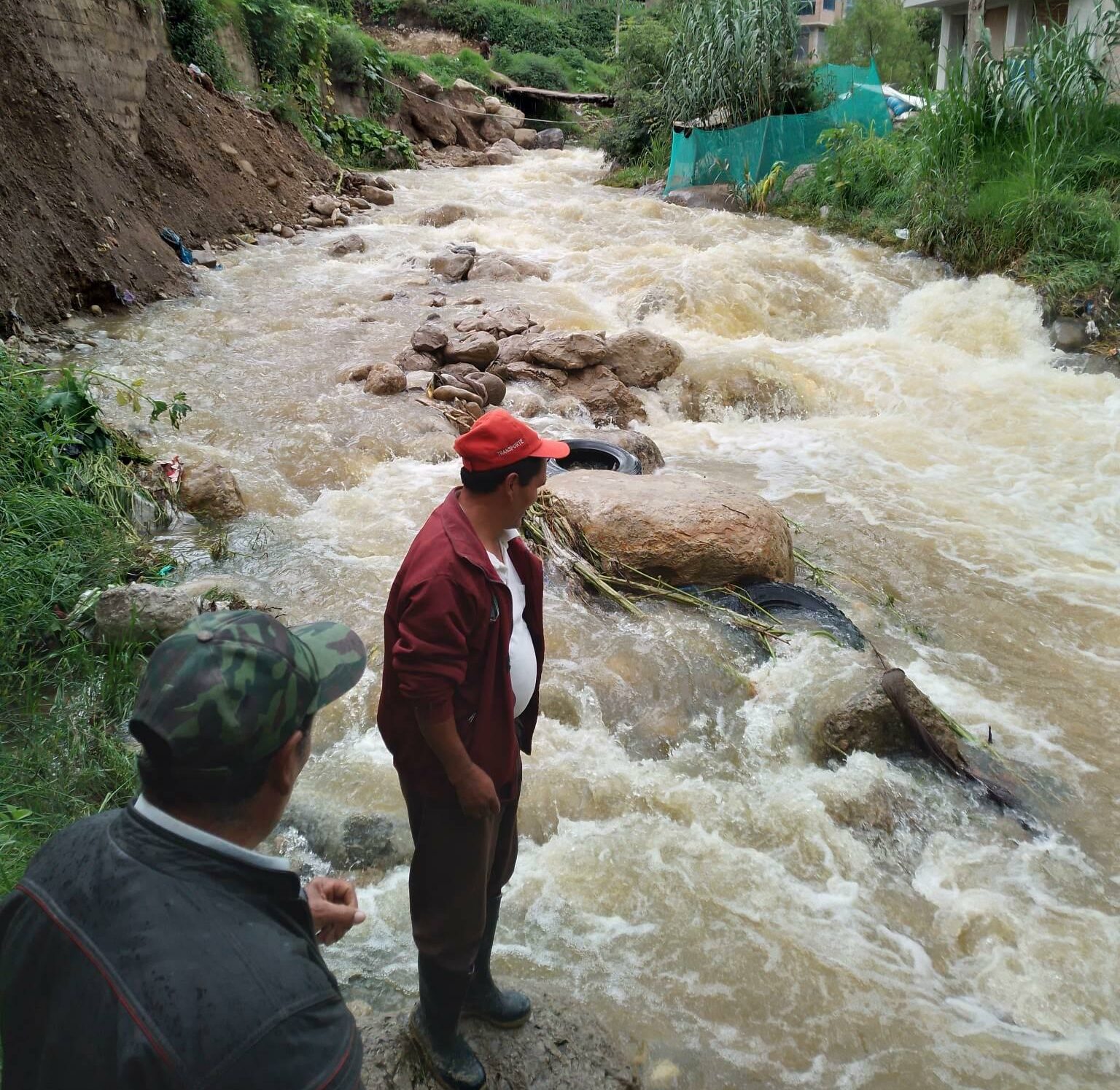
Every year, since 1993, World Water Day is celebrated to raise awareness about the global crisis of access to water, and to take action to defend our rights.
According to the UN, more than two billion people are still without access to drinkable water. There is a critical situation in the province of Cajamarca, which is one of the regions of Peru with the highest number of houses without access to clean water. 42% of houses within the city of Cajamarca lack access to water apt for human consumption.
One of the driving forces denying Cajamarquinxs access to their fundamental right to water is large-scale mining.. Between the end of October and the beginning of November 2022, the entire city of Cajamarca suffered from severe drinking water shortages. According to several reports, this was caused by a decrease in water supply from the Rio Grande dam, controlled by the Yanacocha mining company. During this time, several citizens and journalists reported seeing highly contaminated water and dead fish within the Rio Grande dam catchment area.
In this context, GRUFIDES and CATAPA have been working together since 2020 on a series of projects that aim to provide local communities affected by mining the tools to create their own committees to monitor the quality of their rivers.
This project has been essential for building the autonomy and knowledge of local communities within Cajamarca to take control of the monitoring of their water supply and to demand the right to safe and healthy drinking water from the local authorities. Rather than laboratories or governmental agencies, this places the power and knowledge directly in the hands of local communities to care for their rivers and make collective decisions in defence of their territories.
Who knows their territory and rivers better than the communities who have lived there for generations?
Bambamarca: insight into the building of collective knowledge and the right to say no
These water monitoring committees have acted as a catalyst for organised community resistance against further mining developments. In March 2023, GRUFIDES visited the community of La Lucma in Bambamarca, a few hours north of the city of Cajamarca. In a highly moving meeting, representatives of the local community shared their experiences and participated in a water monitoring workshop. Several testimonies claimed numerous mining projects have caused high levels of contamination of their rivers, infecting children with mercury poisoning, and impacting agriculture on which their livelihoods depend.
As part of the visit, the group collected several samples along a thirty metre stretch of the river. The process of sample collection is highly accessible and simple in practice. Participants collectively retrieve water samples in several points of the river with a net. The soil at the bottom of the net is then poured into a tub, to analyse what benthic macroinvertebrates (aquatic animals without backbones that can be seen without the use of a microscope) are present. The presence of particular macroinvertebrates is an important indicator of water quality, with some only able to survive in fresh, clean water, or vice versa in very polluted conditions.
It was clear from the very first moment that the river was extremely contaminated from the mining projects up stream. The river was the colour orange, with a strong smell of chemicals. In fact, there was zero presence of any macroinvertebrates in the samples. The river is so polluted that nothing is able to survive in the water that the entire community of Bambamarca depends on.

After the collection process, the group reconvened to record the results, share their testimonies and collectively decide a way forward. Representatives signed an agreement declaring they would bring the results back to the wider community to push for the collective organisation of several water monitoring committees to declare their Right To Say No to further encroachment of mining activities, and demand the local authorities take action.
Next Steps: Organisation for the defence of territories and the right to clean water
To mark World Water Day, GRUFIDES will convene a forum of dialogue in the city of Cajamarca to provide a platform for water defenders to share their testimonies, analyse the water crisis and demand the right to safe and clean water in Cajamarca.
Water monitoring committees from across Peru will also convene in Ayacucho from the 21st – 25th March to share experiences, compare methodologies and strengthen the capacity of movements fighting for access to clean water in their territories.
Article written by Connor Cashell, Global Engagement CATAPA officer (GECO) at Cajamarca, Peru.
Bibliography
Instituto Nacional de Estadistica e Informatica, Perú (2020). Perú: Formas de Acceso al Agua y Saneamiento Básico. (Accessed: 20 March 2023)
MAS-Cajamarca (2014) Niña recita hermoso poema contra proyecto Conga (Cajamarca) 6 August. (Accessed 20 March 2023)
Stakeholders Sostenibilidad (2022) ‘Cajamarca, la tierra de Pedro Castillo, sufre por falta de agua potable’, 2 November 2022, Stakeholders. (Accessed: 20 March 2023).
United Nations (2023) Dia Mundial del Agua, 22 Marzo. (Accessed: 20 March 2023).




